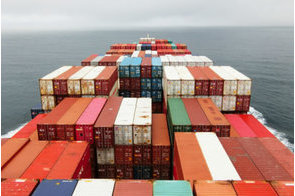Latest News
UNCTAD: International trade and global economy slowing down

News Highlight
Merchandise trade is predicted to drop by 2.4% to US$19 trillion, after significant growth rates of 9.7% in 2018 and 10.7% in 2017.
A new publication, today, by the United Nations Conference on Trade and Development (UNCTAD) in its 2019 Handbook of Statistics says global trade and economic output have stagnated this year, after a continued surge in 2018.
Merchandise trade is predicted to drop by 2.4% to US$19 trillion, after significant growth rates of 9.7% in 2018 and 10.7% in 2017. Trade in services is predicted to only increase by 2.7% to $6 trillion in 2019, a considerable deceleration from 7.7% in 2018 and 7.9% in 2017.
Real global economic output (gross domestic product) is now expected to grow by 2.3% this year, 0.7 percentage points less than last year.
"We see consistency across a range of indicators – the global economy is slowing," said Steve MacFeely, UNCTAD’s chief statistician.
Last year, world merchandise trade increased by 2.3% in volume terms. The 9.7% increase in values could to a large extent be attributed to changes in prices. For example, fuel prices recorded substantial growth, year-on-year, during all the months of 2018, a trend that was reversed at the beginning of 2019, according to UNCTAD's free market commodity price index.
Maritime transport lost momentum in 2018. World seaborne trade volumes rose by only 2.7%, compared with 4.7% in 2017, and port container traffic grew by 4.7%, two percentage points less than the year before.
UNCTAD's 2019 Handbook of Statistics depicts these and other major trends in statistics relevant to international trade and development, summarizing the broad spectrum of statistics maintained in its online database, UNCTADstat.
"The handbook is designed to supply a broad range of users, from all regions of the world and working in different domains, be they policymakers, businesses, researchers, journalists or the person on the street who is interested in global economic and social affairs, with high-quality, impartial and easily readable information on latest trends and patterns," Mr. MacFeely said.
The handbook boasts numerous maps, figures, infographics and tables, accompanied by descriptive text, all of which reveal interesting recent developments, such as foreign direct investment from the US turning into negative in 2018.
It also shows the rising merchandise trade deficit of the developed economies as a group since 2016 and a growing spread of the world supply of manufactured goods by exporting economies over the last two years.
The 2019 edition also extends to new domains, such as statistics on port calls and the time ships spent on ports.
In parallel to the printed document, UNCTAD said it has released a web-ready version of the report and updated factsheets of the main themes covered by the report.
Related News
Latest Blogs
- How Tinubu is ensuring equitable access to public services
- Nigeria’s economic reform faces new threats
- What Ould Tah’s tenure at BADEA reveals about his AfDB candidacy
- Implementation strategy crucial for the success of 12-4 education policy
- A senator’s suspension threatens the right of representation
Most Popular News
- Artificial intelligence can help to reduce youth unemployment in Africa – ...
- Nigeria records $6.83 billion balance of payments surplus in 2024
- Tariffs stir inflation fears in US but offer targeted industry gains ...
- Soaring civil unrest worries companies and insurers, says Allianz
- Rise in vaccine-preventable disease outbreaks is a threat, warn WHO, others
- IMF warns of global public debt approaching 100 percent of GDP









